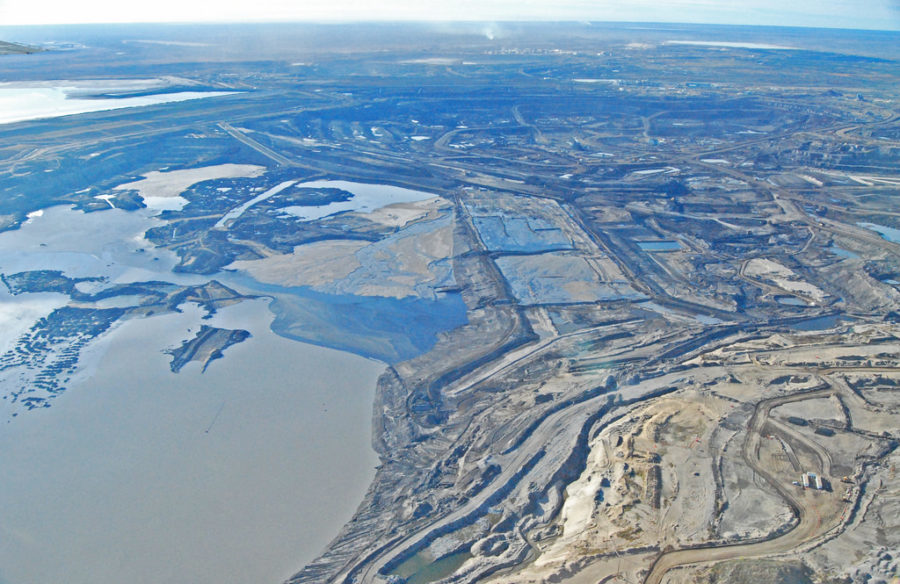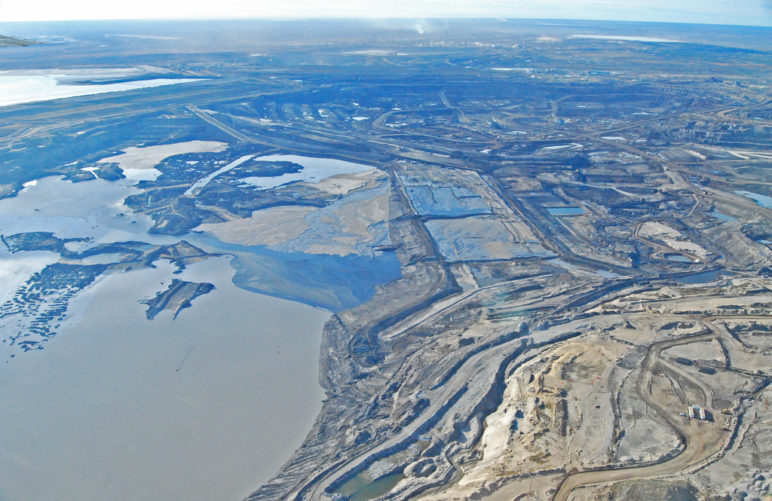Recognizing the growing clout of global climate activism and the rising imperative to speed the world’s transition to cleaner energy, several major international investment banks have now vowed to halt all funding for tar sands projects.
Take France’s Crédit Agricole, which ranks as the 9th largest bank in the world. Last December, the bank issued new financing guidelines that explicitly preclude all funding for oil sands projects, as well as “infrastructure projects mainly intended” to support oil sands development. Société Générale, also among the globe’s top 20 banks, made similar (though less ambitious) commitments.
Good for them! Yet despite the good intentions of those policies, money sometimes makes its way into projects in ways that bankers never envisioned.
Consider the Trans Mountain pipeline expansion. If completed, the project would nearly triple shipments of oil from Canada’s tar sands regions to the Pacific coast—making it just the sort of project that these forward-thinking banks ostensibly have ruled out. Trans Mountain is being pushed forward by a Canadian subsidiary of Houston-based pipeline giant Kinder Morgan, Inc. Although Kinder Morgan executives have told investors that its Canadian subsidiary will be “self-funding,” the reality is that Trans Mountain depends heavily on credit financing from its parent company.
And the parent company’s credit, in turn, is provided by a consortium of banks that includes—you guessed it—Crédit Agricole and Société Générale.
Let’s follow the money, shall we?
Canada’s Pipeline Safety Act holds pipeline companies legally liable for at least $1 billion in damages from an oil spill, even if the pipeline company isn’t at fault. But the country’s National Energy Board (NEB) recognized that Kinder Morgan’s Canadian subsidiaries didn’t have enough money to cover those liabilities on their own. So at the beginning of 2017, the NEB required Trans Mountain to establish a Can$500 million line of credit with its ultimate corporate parent, Kinder Morgan, Inc. (KMI). That credit line would ensure that Trans Mountain would have access to cash at a moment’s notice to pay for oil spill cleanup.
Kinder Morgan tried to wriggle out of this arrangement, petitioning NEB to replace the intra-company credit with a separate credit facility arranged specifically for the company’s Canadian subsidiaries. But NEB denied the request, reaffirming that Trans Mountain must maintain its credit line with its Houston mothership.
But the mothership doesn’t have enough cash on hand to meet NEB’s requirements either! At the end of 2017, Kinder Morgan, Inc. reported a total of only US$264 million (Can$337 million) in cash and cash equivalents on its books. And the company must retain at least some of that cash to pay the bills and keep the lights on.
So, lacking ready cash, Kinder Morgan must use other sources of liquidity to backstop the NEB’s mandated credit line. In its 2017 annual report, Kinder Morgan mentions only two other sources of liquidity besides cash flows. The first is its Canadian subsidiary’s credit facility—which, as mentioned above, the NEB has explicitly prohibited from serving as a backstop for its oil spill liabilities. The second is Kinder Morgan’s “$5.0 billion revolving credit facility and associated $4.0 billion commercial paper program.” In fact, NEB specifically referred to these credit lines when explaining that the parent company had ample resources to pay for an oil spill.
In short, Trans Mountain relies on Kinder Morgan’s $5.0 billion revolving credit facility to comply with Canada’s oil spill liability financing rules. Without that credit facility, the Trans Mountain project would be dead in the water. And that makes Kinder Morgan’s credit facility a critical part of the financing for the Trans Mountain pipeline.
And that raises a key question: which specific banks have extended credit to Kinder Morgan?
As it turns out, the list of 26 banks on Kinder Morgan’s revolving credit facility includes…none other than Crédit Agricole and Société Générale, banks that have allegedly ruled out tar sands financing. Yet together, those two banks give Kinder Morgan access to $350 million in credit that is directly underpinning the Trans Mountain pipeline expansion project.
If that’s not serious enough, there’s actually a second way these banks are financing the Trans Mountain pipeline. As mentioned above, Kinder Morgan had hoped to use its Canadian subsidiary’s credit to backstop the pipeline’s liability. But when NEB nixed that plan, it left Kinder Morgan’s subsidiary with an additional Can$500 million in credit available to build the pipeline. Money is fungible, and the financing that Crédit Agricole, Société Générale, and 24 other banks provide to Kinder Morgan has freed up other sources of financing to build the pipeline.
Crédit Agricole’s critique of the oil sands industry is accurate and unsparing: it names tar sands as among “the least energy efficient hydrocarbons…that pose the greatest threat to the environment, because [they] are incompatible with the goal of combating climate change.” But despite the promising rhetoric, the bank is still underwriting tar sands oil projects. Which suggests that it could do a much better job in firming up both its policies and its tracking systems, to make sure that it’s really putting its money where its mouth is.








